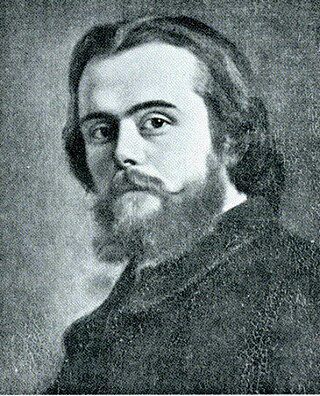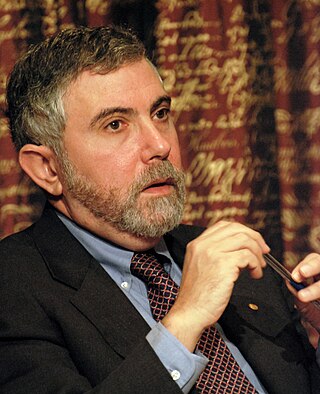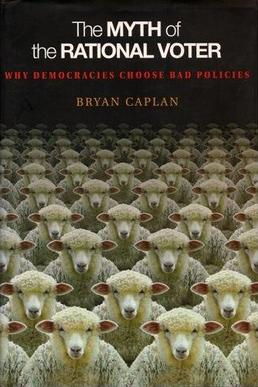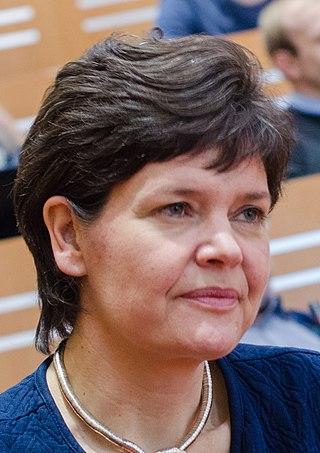The Austrian School is a heterodox school of economic thought that advocates strict adherence to methodological individualism, the concept that social phenomena result exclusively from the motivations and actions of individuals. Austrian school theorists hold that economic theory should be exclusively derived from basic principles of human action.

Marie-Esprit-Léon Walras was a French mathematical economist and Georgist. He formulated the marginal theory of value and pioneered the development of general equilibrium theory. Walras is best known for his book Éléments d'économie politique pure, a work that has contributed greatly to the mathematization of economics through the concept of general equilibrium. The definition of the role of the entrepreneur found in it was also taken up and amplified by Joseph Schumpeter.

Paul Robin Krugman is an American economist who is the Distinguished Professor of Economics at the Graduate Center of the City University of New York and a columnist for The New York Times. In 2008, Krugman was the winner of the Nobel Memorial Prize in Economic Sciences for his contributions to New Trade Theory and New Economic Geography. The Prize Committee cited Krugman's work explaining the patterns of international trade and the geographic distribution of economic activity, by examining the effects of economies of scale and of consumer preferences for diverse goods and services.
The Chicago school of economics is a neoclassical school of economic thought associated with the work of the faculty at the University of Chicago, some of whom have constructed and popularized its principles. Milton Friedman and George Stigler are considered the leading scholars of the Chicago school.
Institutional economics focuses on understanding the role of the evolutionary process and the role of institutions in shaping economic behavior. Its original focus lay in Thorstein Veblen's instinct-oriented dichotomy between technology on the one side and the "ceremonial" sphere of society on the other. Its name and core elements trace back to a 1919 American Economic Review article by Walton H. Hamilton. Institutional economics emphasizes a broader study of institutions and views markets as a result of the complex interaction of these various institutions. The earlier tradition continues today as a leading heterodox approach to economics.

John Rogers Commons was an American institutional economist, Georgist, progressive and labor historian at the University of Wisconsin–Madison.

Heterodox economics is any economic thought or theory that contrasts with orthodox schools of economic thought, or that may be beyond neoclassical economics. These include institutional, evolutionary, feminist, social, post-Keynesian, ecological, Austrian, complexity, Marxian, socialist, and anarchist economics.
Mainstream economics is the body of knowledge, theories, and models of economics, as taught by universities worldwide, that are generally accepted by economists as a basis for discussion. Also known as orthodox economics, it can be contrasted to heterodox economics, which encompasses various schools or approaches that are only accepted by a minority of economists.

Herbert Joseph Davenport was an American economist and critic of the Austrian School, educator and author.

David John Orrell is a Canadian writer and mathematician. He received his doctorate in mathematics from the University of Oxford. His work in the prediction of complex systems such as the weather, genetics and the economy has been featured in New Scientist, the Financial Times, The Economist, Adbusters, BBC Radio, Russia-1, and CBC TV. He now conducts research and writes in the areas of systems biology and economics, and runs a mathematical consultancy Systems Forecasting. He is the son of theatre historian and English professor John Orrell.

Russell David "Russ" Roberts is an American economist. He is currently a research fellow at Stanford University's Hoover Institution and president of Shalem College in Jerusalem. He is known for communicating economic ideas in understandable terms as host of the EconTalk podcast.

The Myth of the Rational Voter: Why Democracies Choose Bad Policies is a 2007 book by the economist Bryan Caplan, in which the author challenges the idea that voters are reasonable people whom society can trust to make laws. Rather, Caplan contends that voters are irrational in the political sphere and have systematically biased ideas concerning economics.
Brian Clegg is an English science writer. He is the author of popular science books on topics including light, infinity, quantum entanglement and surviving the impact of climate change, and biographies of Roger Bacon and Eadweard Muybridge.

Stephanie A Kelton is an American heterodox economist and academic, and a leading proponent of Modern Monetary Theory. She is a professor at Stony Brook University and a Senior Fellow at the Schwartz Center for Economic Policy Analysis at the New School for Social Research. She was formerly a professor at the University of Missouri–Kansas City. She also served as an advisor to Bernie Sanders' 2016 presidential campaign and worked for the Senate Budget Committee under his chairmanship.

Thomas MacGillivray Humphrey is an American economist. Until 2005 he was a research advisor and senior economist in the research department of the Federal Reserve Bank of Richmond and editor of the Bank's flagship publication, the Economic Quarterly. His publications cover macroeconomics, monetary economics, and the history of economic thought. Mark Blaug called him the "undisputed master" of British classical monetary thought.
The World Economics Association (WEA) is a professional association, launched in 2011, which promotes a pluralistic approach to economics.

Introducing Relativity is a 2002 graphic study guide to the theory of relativity and Albert Einstein written by Bruce Bassett and illustrated by Ralph Edney. The volume is, according to the publisher's website, "a superlative, fascinating graphic account of Einstein’s strange world," which, "plots a visually accessible course through the thought experiments that have given shape to contemporary physics."
Quantum economics is an emerging research field which applies mathematical methods and ideas from quantum physics to the field of economics. It is motivated by the belief that economic processes such as financial transactions have much in common with quantum processes, and can be appropriately modeled using the quantum formalism. It draws on techniques from the related areas of quantum finance and quantum cognition, and is a sub-field of quantum social science.

Kate Raworth is an English economist known for "doughnut economics", an economic model that balances between essential human needs and planetary boundaries. She is Senior Associate at Oxford University’s Environmental Change Institute and a Professor of Practice at Amsterdam University of Applied Sciences.

Basic Economics is a non-fiction book by American economist Thomas Sowell published by Basic Books in 2000. The original subtitle was A Citizen's Guide to the Economy, but from the third edition in 2007 on it was subtitled A Common Sense Guide to the Economy.













